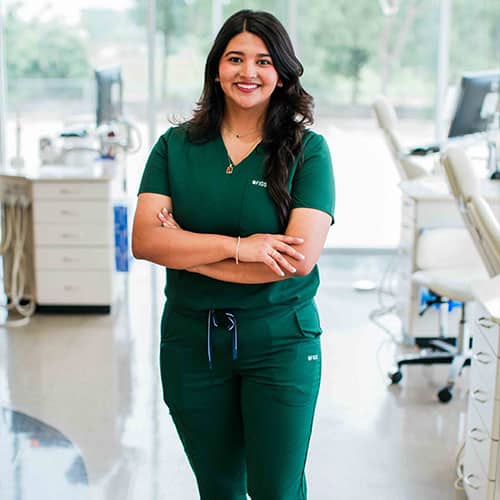In the United States, there are over 200,000 dentists with over 20% of them being specialists.
Whether you’re seeing a dentist, orthodontist, or oral surgeon, modern dentistry can do amazing things. From fillings to straightening, root canals to replacement teeth, they can do it all. If you need dental work, you may be wondering about the difference between an orthodontist and an oral surgeon.
Here is what you need to know about orthodontists and oral surgeons, and why they aren’t the same.
Types of Dental Specialties
When people think of dental care, they often think of a general dentist. This is who you go see to check for cavities, regular cleaning, and checkups. If a problem is discovered that requires a specialist, you may find yourself sent to someone with a more focused dental discipline.
Behind the general practice dentist, there are a number of professionals that you may have to go see. One is the orthodontist and the other is an oral surgeon. There are other specialists in the dental field, like pediatric dentistry and periodontists but they are not as common.
No matter what problem you’re having with your teeth, you can rest assured that modern dentistry will have someone who can help you. Now it’s time to answer the question, what is an orthodontist and what is an oral surgeon.
Orthodontist
In the realm of dentistry, orthodontists are the ones who take care of misaligned teeth. They deal with growth deformations, straightening, and even jawline and facial structure. If you have crooked teeth and need braces, there’s a good chance you’ll see an orthodontist.
They study basic dentistry like all dental specialists but then go to specialty training. After their four years in dental school, they have to complete another 2 to 3 years in graduate programs. This means that in total an orthodontist will spend 10 to 11 years in school before they graduate.
This amount of training is required because of how common and varied growth deformities in teeth are. They have to have a wide variety of tools and understanding to make their specialty worthwhile.
Orthodontists see patients of all ages and backgrounds. They can work in a variety of conditions, but most have their own practices with other Orthodontists. This allows them to combine their knowledge and resources if necessary.
Oral Surgeon
Oral surgeons cover a wide variety of procedures that range from reconstruction of facial bones to tooth extraction. They are trained to deal with facial trauma, head and neck issues, and the oral cavity. They can even do cosmetic operations. This broad focus requires a lot of training and experience.
It takes more time and knowledge to become an oral surgeon than in almost any other medical specialty. Often they go to four years of college, four years of dental college, and then four to six years of residency. The scope of their responsibilities is incredible and they are in high demand.
Due to the variety of procedures they have to learn, oral surgery is one of the most demanding specialties. If you have to see an oral surgeon it will be by recommendation and referral from a dentist or orthodontist. Oral surgeons work out of private practices and hospitals.
Due to the surgical nature of their work, oral surgeons will often use a local hospital or dental hospital as their primary workplace. They often work with others like plastic surgeons, anesthetists, and surgical nurses.
Non-Surgical Operations
Something to consider when looking at orthodontist vs. oral surgeon is how things have changed. Surgical procedures have come a long way, and so have orthodontist care in the last twenty years. This trend is continuing as more modern approaches and procedures become available.
What once required operations and lengthy recovery periods can be outpatient care. Even straightening teeth requires far less work than it once did. Products like Invisalign and other options are now on the table and can replace braces in some cases.
Which Do I Need?
When it comes down to dental procedures, most people will never have to see an oral surgeon. Their needs will need either a general dentist or an orthodontist. It is far rarer to need a surgeon than it once was, but for certain injuries, traumas, or conditions they remain vital.
If you end up needing to see an oral surgeon, it will be because your dentist or orthodontist sent you to them. They will explain the situation and why you need to see a surgeon. You’ll have a consultation and be able to speak to them about your specific problem.
They will then explain what they are going to do and why it is necessary. You should look at dental care as another component of health care. Search around until you find the best orthodontist or best oral surgeon for your needs and situation.
In the simplest terms, you’ll need an orthodontist if your teeth are crooked or not growing in the way they are supposed to. You’ll need an oral surgeon if you require a surgical operation. The two professions rely on one another from time to time, but the point is always getting you the best care possible.
Orthodontist vs. Oral Surgeon
Now that you know what each does, the question of orthodontist vs. oral surgeon is easy to answer. They don’t work against one another, but instead with one another. The combination of services they provide ensures that you will have the best possible dental care.
Sing Orthodontics is here to take care of patients of all ages and make sure that they have the smile they deserve. We have multiple locations to take care of you close to home. Stop restraining yourself from smiling because you feel embarrassed about your teeth and look into getting treatment today!
If you need orthodontist work or want to consult with an orthodontist, contact us.




